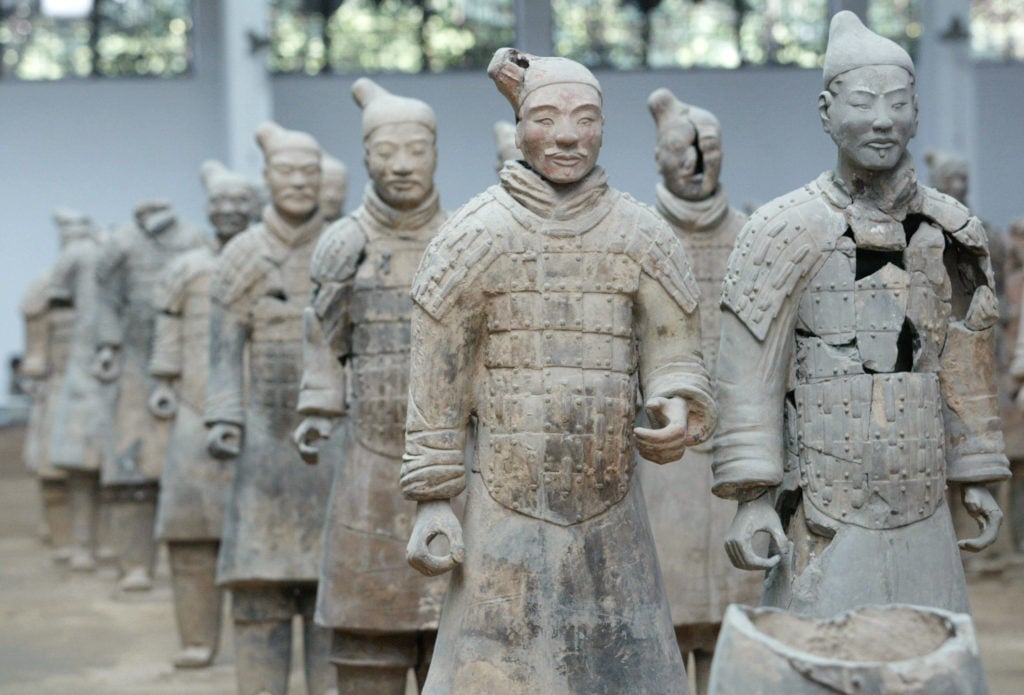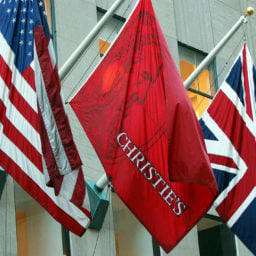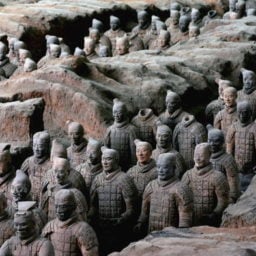Art Industry News is a daily digest of the most consequential developments coming out of the art world and art market. Here’s what you need to know this Tuesday, April 10.
NEED-TO-READ
France and Saudi Arabia Agree to Cultural Development Deal – France is expected to sign a 10-year agreement to help Saudi Arabia transform the Al-Ula region into an international cultural destination. As part of the $20 billion project (no, that’s not a typo), France will advise on the development of museums, archaeological digs, and public transport. A proposed museum of Arab civilization on the site of Mada’in Saleh could be “two to three times bigger than the Louvre Abu Dhabi.” (The Art Newspaper)
Baselitz Theft Trial Starts in Germany – The trial of three suspects charged with stealing and attempting to sell 15 paintings and drawings worth more than $3 million from the German artist Georg Baselitz has begun in Munich. The works were pilfered while in storage between 2015 and 2016. (Monopol)
Philadelphia Is Sorry It Broke China’s Thumb – The City of Philadelphia has passed a resolution to apologize to China for the damage done to a terracotta warrior that was on loan to the city’s Franklin Institute. Last December, 24-year-old Michael Rohana allegedly broke off a thumb and stole the digit during a party held at the museum, causing something of an international incident. (China Plus)
All Aboard For a New Toy Train Museum – The Frank Gehry-designed Extreme Model Railroad and Contemporary Architecture Museum, the brainchild of former Guggenheim director Thomas Krens, is nearing the construction phase, having secured agreements with two building companies. The scale-model spectacular in north Massachusetts includes more than nine miles of track and 150 model buildings, many designed by star architects. (Press release)
ART MARKET
Proposed Law Would Clamp Down on Fake Aboriginal Art – Indigenous art centers in Australia are calling on lawmakers to make it illegal to sell mass-produced, imported replicas of Aboriginal-style artwork. An estimated 85 to 90 percent of Aboriginal art sold in souvenir shops is fake and imported from overseas, according to groups who testified at a recent hearing in Perth. (Guardian)
Sotheby’s Reinstates Fees for Online Sales – After removing all buyer’s premiums from online sales last November, Sotheby’s has partially reversed the move. As of April 1st, Sotheby’s staff now have the freedom to decide whether or not to apply premiums to their departments’ online sales. (Financial Times)
Phillips’s Photo Sale Makes Close to $5 Million – The first New York photographs auction of the year, a sale of the collection from Dr. Saul Unter, set new auction records for Rudolf Koppitz and Robert Capa. Eighty percent of the 233 lots on offer sold. (Press release)
Australian Government Investigates Illegal Ivory Trade – Australian MPs are examining whether lax regulations are aiding the illegal trade in rhino horn and ivory. The investigation comes after a number of governments—including the US, China, and the UK—have proposed tighter regulations on the import and export of the material. (VOA)
COMINGS & GOINGS
German Artist Max Uhlig Donates His House and Oeuvre to Saxony – The 80-year-old painter, illustrator, and graphic artist has donated some 15,214 objects to the Cultural Foundation of the German state of Saxony, as well as his house and studio. In the future, his residence will host an international artist residency. (Monopol)
ArtEast Foundation Launches Call for Research Grants – The foundation, which is dedicated to supporting art from Eastern Europe, has put out an open call for curators and art historians to submit research projects on Eastern European art from 1948 to 1968. The call for submissions runs until June 4; winners will receive grants. (Press release)
BP Portrait Award Shortlist Announced – The shortlisted artists for London’s National Portrait Gallery’s annual portrait prize sponsored by the energy company are: Zhu Tongyao, Miriam Escofet, Felicia Forte, and Ania Hobson. The winner will be announced on June 11 and will receive a cash prize of £35,000 ($49,600). (Guardian)
Tribeca Film Festival Announces Artist Participants – Ten international contemporary artists have been chosen to donate artworks as awards for the prize-winning filmmakers participating in the 2018 New York film festival. This year’s artist lineup includes Ghada Amer, Nancy Dwyer, Joan Snyder, and Julia Wachtel. (Press release)
FOR ART’S SAKE
Government Wants Rubens Sketch to Stay in the UK – The British government has placed a temporary export bar on Sir Peter Paul Rubens’s 17th century oil sketch, African Man Wearing a Turban, one of few depictions of an African person in Europe from that time. Unless a buyer is willing to match its £7.7 million ($10.9 million) price tag before July 5, however, it will leave the UK for good. (Press release)
NEH Awards $18.6 Million in Grants – Nearly 200 initiatives across the US will receive funding from the National Endowment for the Humanities. Among the recipients is the MFA Houston’s new digital archive, the Fashion Institute of Technology’s new curriculum, and Indiana University’s efforts to conserve author Ray Bradbury’s archive. (Artforum)
Tracey Emin Unveils Largest Light Work to Date – The Royal Academician has unveiled a 20-meter-long LED text work at St Pancras International in London, marking the railway station’s 150th anniversary and the 250th anniversary of the Royal Academy. Suspended from the ceiling, Emin’s largest ever light work reads I Want My Time With You. It will remain in place until the end of the year. (Press release)
Memorial to the Victims of Lynching Prepares to Open – A National Memorial for Peace and Justice will open on April 26 on a hilltop in Montgomery, Alabama. The first national memorial to the victims of lynching comprises 800 hanging steel blocks that represent each county where lynching took place between 1877 and 1950; more than 4,000 individual names of victims will be carved into the blocks. (CNN)









